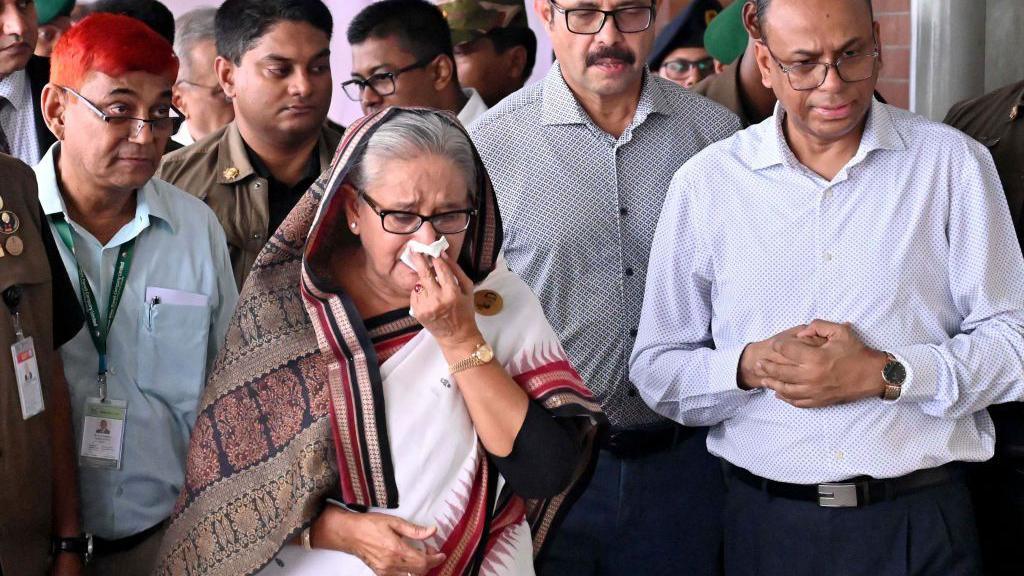Fresh violence in Bangladesh student protests
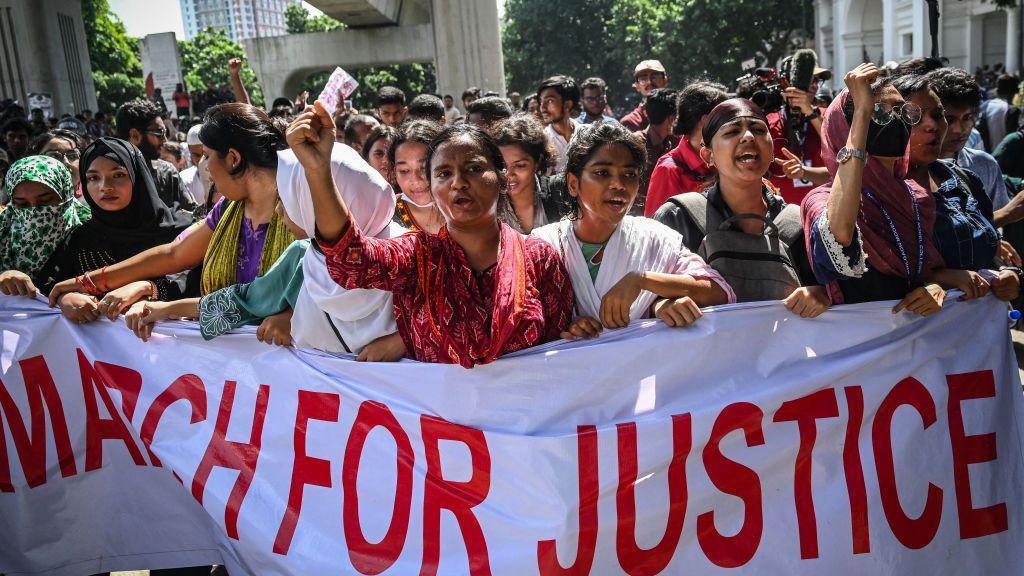
Protesters' demands include a public apology from Prime Minister Sheikh Hasina
- Published
Fresh violence has broken out in Bangladesh between police and student protesters demanding justice for victims of recent unrest.
Clashes were reported in the capital Dhaka and other cities on Wednesday. In the north-eastern city of Sylhet, an official claimed demonstrators had attacked police who in turn used tear gas.
Photos sent from the southern city of Barisal to BBC Bangla show police in riot gear and wielding batons, barricading demonstrations and taking away protesters, many of whom are women.
More than 200 people have been killed in this month's violence, mostly as a result of police opening fire. Nearly 10,000 people have reportedly been detained.
Wednesday's "March for Justice" was called by the Students Against Discrimination movement.
They said they were demonstrating against "mass killings, arrests, attacks, and disappearances of students and people".
Students have been protesting against attempts to reinstate quotas in civil service jobs for relatives of veterans from the country’s war for independence from Pakistan in 1971 for more than three weeks.
A third of public sector jobs had been set aside for them, but on 21 July the Supreme Court court ruled just 5% of the roles could be reserved.
The student movement believes the system is discriminatory and has demanded recruitment based on merit.
Organisers have demanded an apology from Prime Minister Sheikh Hasina and for six ministers to resign over deadly clashes at the resulting protests.
The government blames the main opposition Bangladesh Nationalist Party and the Jamaat-e-Islami party for the unrest.
The European Union has postponed talks with Bangladesh on a new co-operation agreement after criticism of the government's crackdown.
On Tuesday, the bloc's foreign policy chief Josep Borrell condemned what he called the use of excessive force against protesters and asked for those responsible to be brought to justice.
The now postponed co-operation deal had been intended to boost economic links between Bangladesh and the EU, the country's main trading partner.
Related topics
- Published6 August 2024
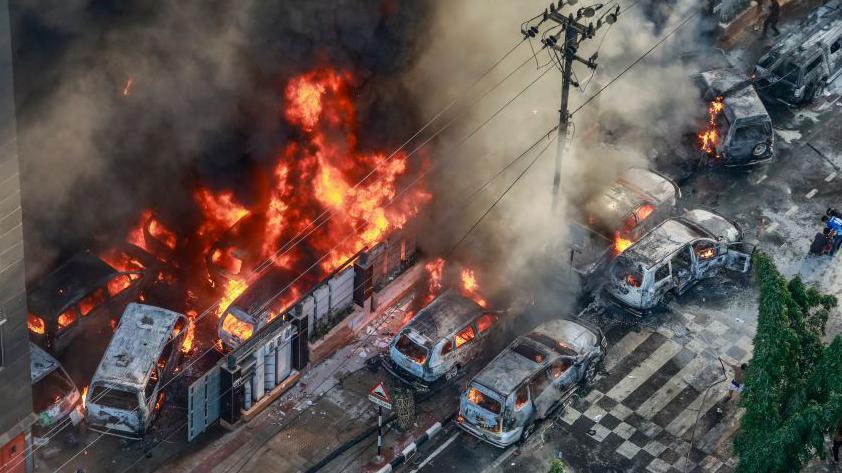
- Published24 July 2024
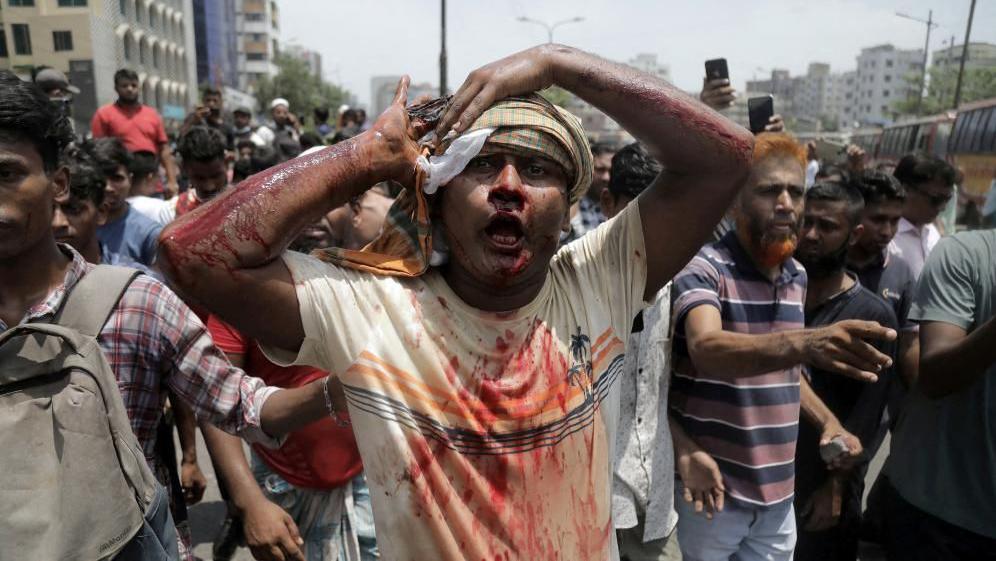
- Published30 July 2024
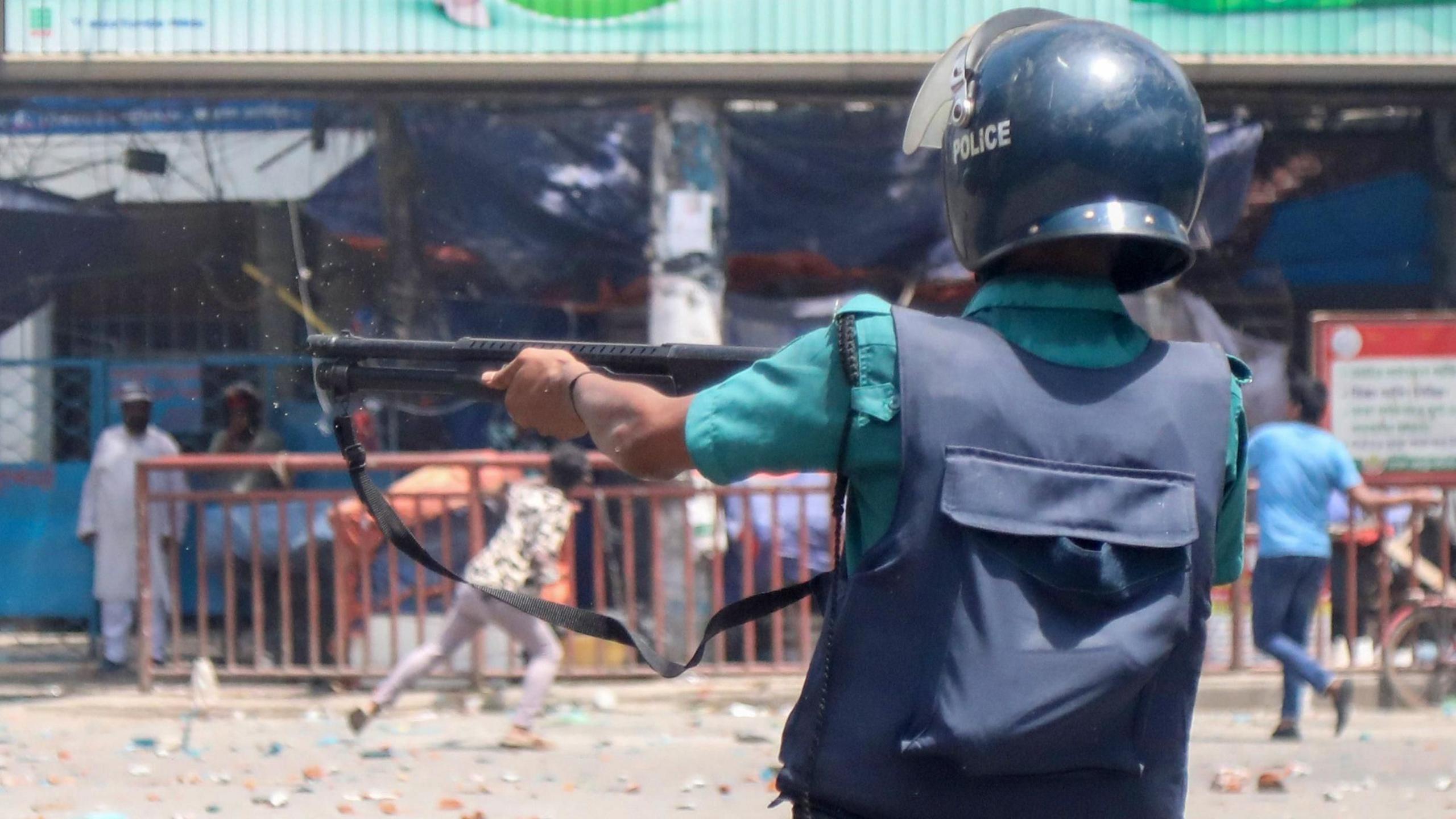
- Published26 July 2024
